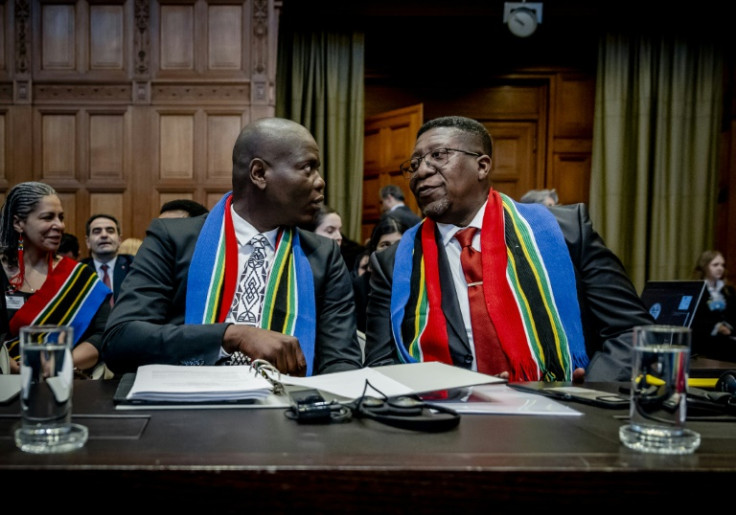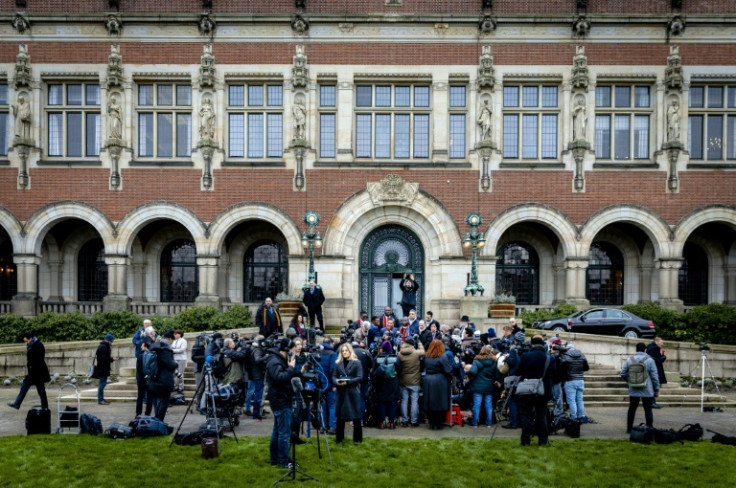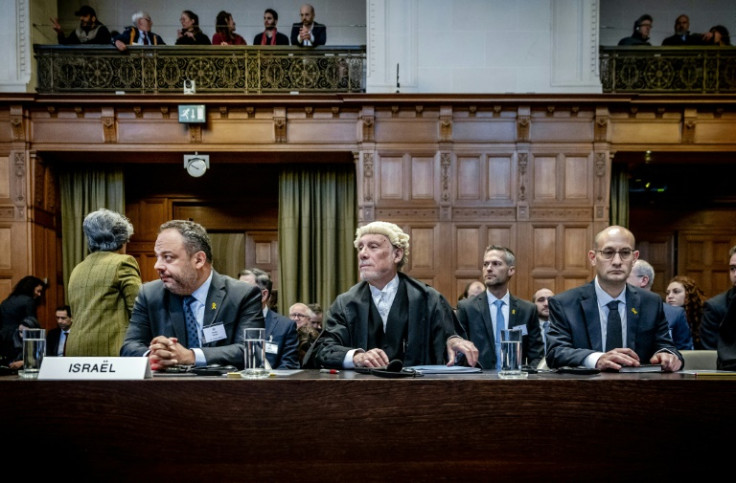
The top UN court hands down an initial decision Friday in a case against Israel over alleged genocide in Gaza, a landmark ruling closely watched in the Middle East and around the world.
The International Court of Justice could order Israel to stop its military campaign in Gaza, sparked by the unprecedented October 7 attacks by Hamas, or to facilitate humanitarian aid.
The court will not however pass judgement on whether or not Israel is actually committing genocide in Gaza.
At this stage, the ICJ will hand down emergency orders before considering the wider accusation of genocidal acts in Gaza -- a process that will likely take years.
The case has been brought by South Africa, which says that Israel is in breach of the 1948 UN Genocide Convention, set up in the ashes of World War II and the Holocaust.
"South Africa does not need to prove that Israel is committing genocide," said Juliette McIntyre, international law expert from the University of South Australia.
"They simply need to establish that there is a plausible risk of genocide occurring," she told AFP.
Over two days of hearings earlier this month in the gilded halls of the Peace Palace in the Hague, a world away from the violence in Israel and Gaza, robed lawyers argued over the technicalities of the Genocide Convention.
"Genocides are never declared in advance," declared Adila Hassim, a top lawyer for South Africa.
"But this Court has the benefit of the past 13 weeks of evidence that shows incontrovertibly a pattern of conduct and related intention that justifies a plausible claim of genocidal acts," she added.
The case has sparked fury in Israel, with Prime Minister Benjamin Netanyahu declaring that "the world is upside down".
Israel's lawyer Tal Becker dismissed Pretoria's case as a "profoundly distorted factual and legal picture" and a "decontextualised and manipulative description of the reality" on the ground.
Showing the court images of the brutal Hamas attack, Becker said that "if there have been acts that may be characterised as genocidal, then they have been perpetrated against Israel".
Becker denied that Israel's operations were aimed at the citizens of Gaza. The army's aim was "not to destroy a people, but to protect a people, its people, who are under attack on multiple fronts", he said.
The ICJ's rulings are binding on all parties, but it has no mechanism to enforce them. Sometimes they are completely ignored -- the court has ordered Russia to stop its invasion of Ukraine for example.
Netanyahu has already suggested he does not feel bound by the court, saying "no one will stop us -- not The Hague, not the Axis of Evil and no one else".
"It is conceivable that an order by the court would not have any significant influence on Israel's military operation," said Cecily Rose, assistant professor of public international law at Leiden University.
But if the court decides there is a risk of genocide in Gaza, it could still have a ripple effect, notably on other nations that back Israel politically or militarily.
"It makes it much harder for other states to continue to support Israel in the face of a neutral third party finding there is a risk of genocide," said McIntyre.
"States may withdraw military or other support for Israel in order to avoid this," she added.
In addition, she noted the "huge" symbolic impact of any ruling against Israel under the Genocide Convention, given its tragic history.
In its submission to the court, South Africa acknowledged the "particular weight of responsibility" of accusing Israel of genocide but said it was bound to uphold its duties under the Convention.
Israeli lawyer Becker retorted that "there can hardly be a charge more false and more malevolent than the allegation against Israel of genocide".
The October 7 Hamas attack resulted in the death of around 1,140 people in Israel, most of them civilians, according to an AFP tally based on official Israeli figures.
At least 25,700 Palestinians, around 70 percent of them women, young children and adolescents, have been killed in the Gaza Strip in Israeli bombardments and ground offensive since then, according to the Hamas government's health ministry.









